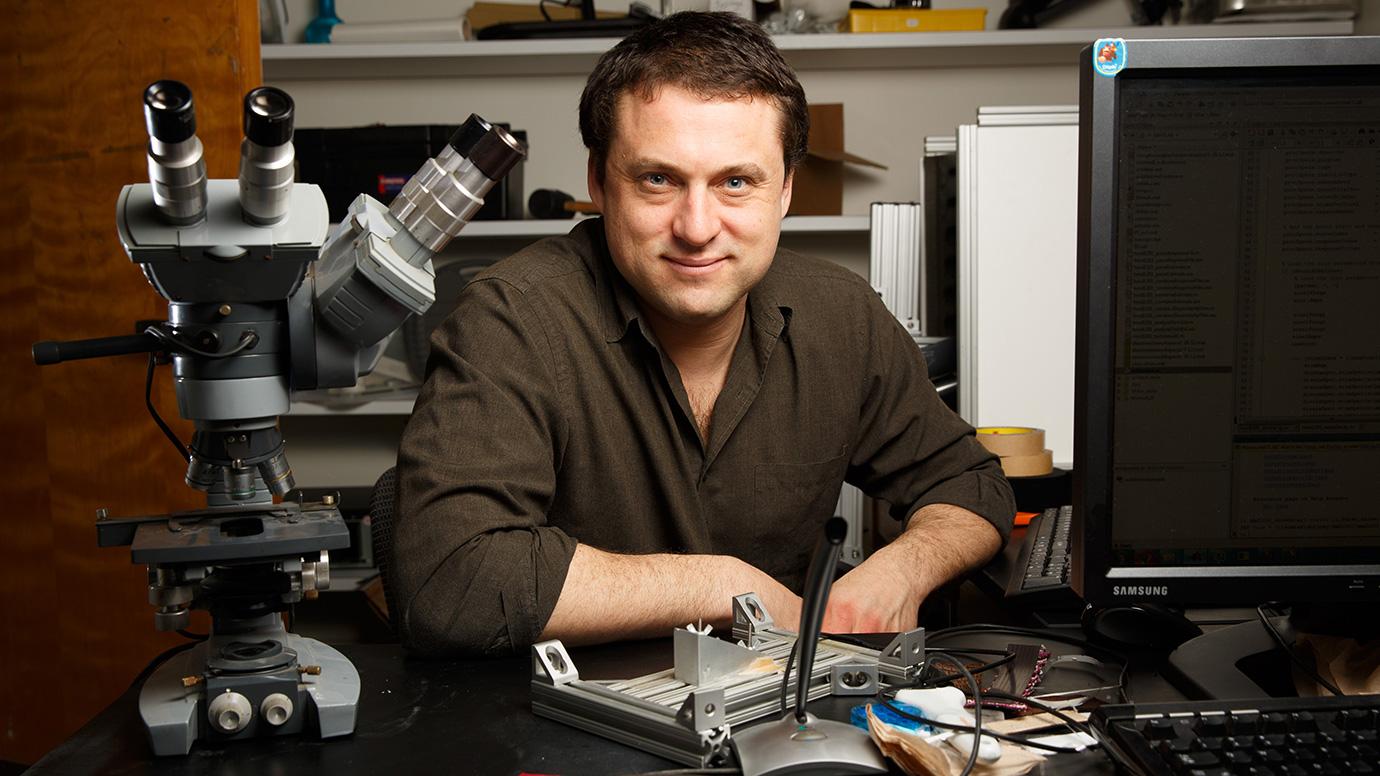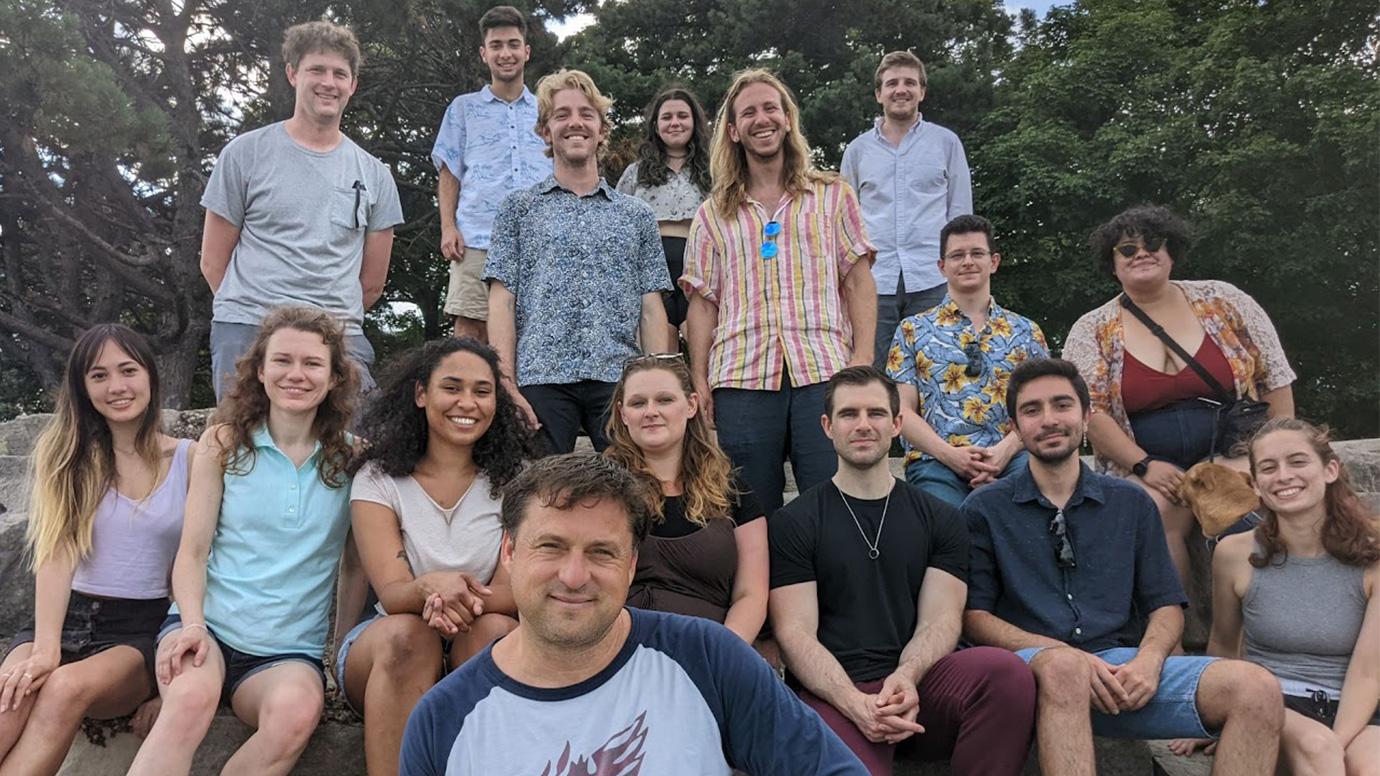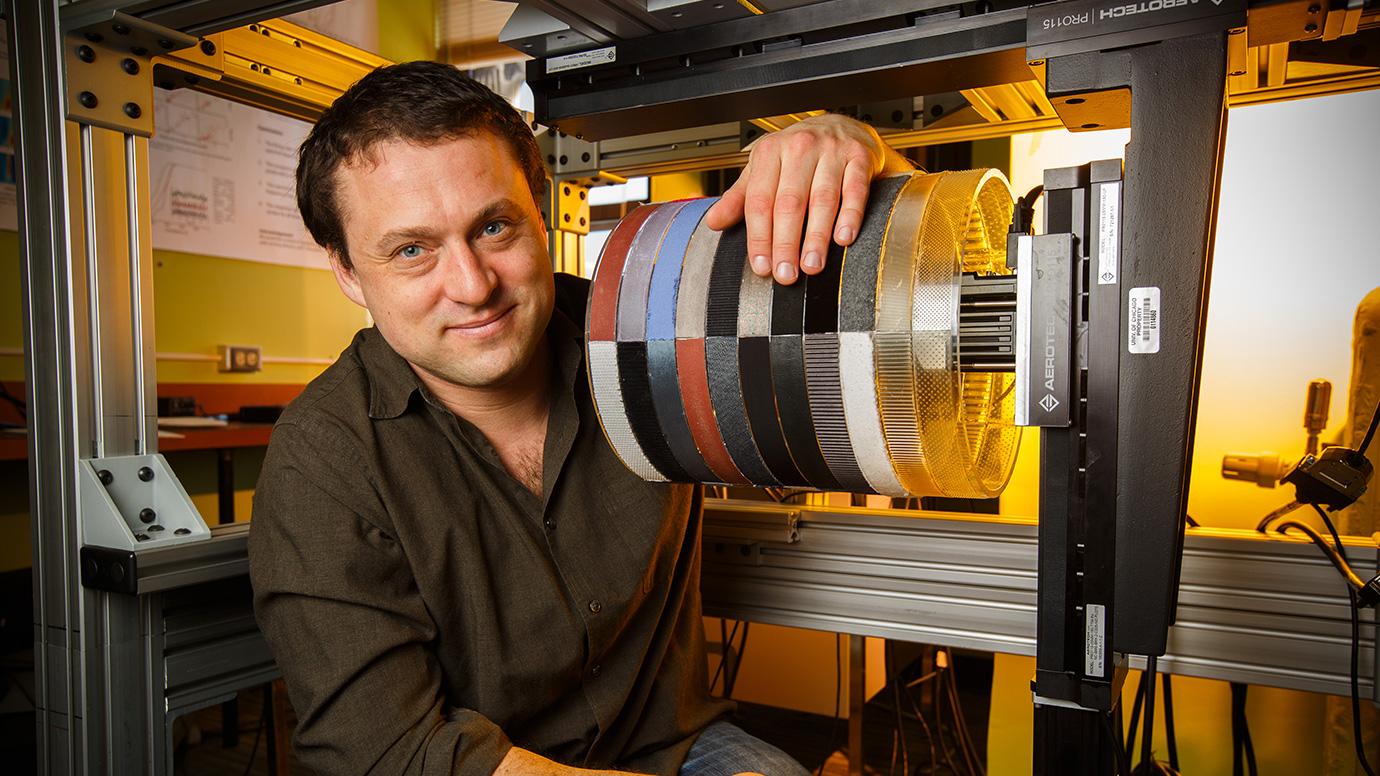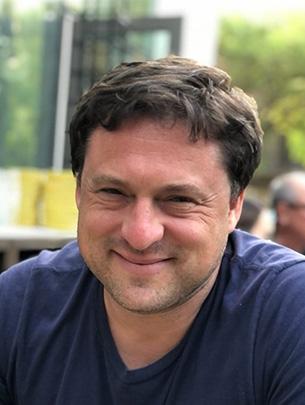Sliman Bensmaia, leading expert on the neuroscience of touch, 1973-2023

Sliman Bensmaia, PhD, a pioneering neuroscientist and leading expert on the sense of touch, died on August 11, 2023. He was 49 years old.
Bensmaia, the James and Karen Frank Family Professor of Organismal Biology and Anatomy at the University of Chicago, explored how sensory information about touch, texture, and the shape of objects is represented in the nervous system and brain, which in turn generates human perception of the world. He then used these discoveries to help develop prosthetic limbs that can restore a realistic sense of touch to amputees and paralyzed patients.
His lab generated algorithms for brain computer interfaces (BCI) that convert the output of sensors on bionic hands into patterns of stimulation that can be transmitted through electrodes implanted in the brain. Using what he called a “biomimetic” approach, he and his team sought to mimic the biological processes underlying how the nervous system communicates signals from the arms and hands to create natural-feeling sensations of touch and give bionic limbs greater dexterity.
“Sliman was a driving force and real inspiration to others,” said Michael Coates, PhD, Professor, and Chair of the Department of Organismal Biology and Anatomy. “His research group was thriving in a phenomenal way, absolutely bursting at the seams with talented students and postdocs working on fundamental science for wonderfully thoughtful and constructive projects. While his work was intrinsically fascinating, he was just as thoughtful, sincere, and conscientious about supporting everyone around him.”

Bensmaia’s lab published a series of groundbreaking studies in 2013 and 2015 that provided blueprints for incorporating realistic sensory feedback into prosthetic limbs. Through experiments with non-human primates, they identified patterns of neural activity that occur naturally as the animals manipulate objects — and successfully re-created those patterns by directly stimulating the nervous system with electrical signals.
In 2016, Bensmaia worked with partners at the University of Pittsburgh to develop the first ever robotic prosthetic device that gave realistic touch feedback to a human patient who could control its arm and hand with his thoughts. The device enabled a 28-year-old man who was paralyzed from the chest down to distinguish between touches on individual fingers and the palm of a robotic hand. Later that fall, the patient used the arm to greet President Barack Obama at a White House event.
Nicholas Hatsopoulos, PhD, a Professor of Organismal Biology and Anatomy who studies motor control and how the brain directs movement in the limbs, was a frequent collaborator with Bensmaia. Their work together included a project to create a prosthesis with the same dexterity and functionality as the human hand.
Hatsopoulos described their partnership as yin-and-yang: The intense Bensmaia focused on sensation and the more laid-back Hatsopoulos focused on movement. “He was a force of nature,” Hatsopoulos said. “He was like my younger brother, but he demanded a lot and pushed me to be better. He wanted to do the best science we could do and wouldn’t sacrifice that for anything.”

Bensmaia continued working with partners at UChicago and other universities to further develop BCI devices and robotic hands that connect to peripheral nerves in amputated limbs. In 2021, working with UChicago neurosurgeon Peter Warnke, MD, the team successfully implemented a BCI-based robotic limb in another patient who suffered spinal cord damage in a car accident, featured earlier this year on 60 Minutes.
He received a Maximizing Investigators' Research Award (MIRA/R35) from the National Institute of Neurological Disorders and Stroke in 2022 to further support this neuroprosthetics work. More recently, he began expanding the application of these concepts, rooted in the belief that the sense of touch is a fundamental part of what makes us human. He was working with gynecologist Stacy Lindau, MD, and biomaterials engineer Sihong Wang, PhD, to develop a “bionic breast,” an implantable device that would help restore sensation and sexual function for breast cancer patients after mastectomy and reconstructive surgery.
“Sliman’s passion for restoring the human sense of touch had its origins in love. He loved the science of touch, but, even more, he loved his students, colleagues and the patients who worked with him to discover the essence and meaning of touch,” Lindau said. “He was drawn to the Bionic Breast Project because of the potential for very large-scale impact of his discoveries and because he saw uncharted territory in the scientific understanding of loving touch, specifically.”
From Charlottesville to Chicago
Bensmaia received his bachelor’s degree from the University of Virginia in Charlottesville in 1995. As an undergraduate studying computer engineering and cognitive science, he wanted to be a musician. He was an accomplished pianist, but his parents, both academics, convinced him to apply to graduate school. He was accepted at the University of North Carolina at Chapel Hill (UNC), where he worked in a psychology laboratory studying the sense of touch. He earned a PhD in cognitive psychology with a minor in neurobiology from UNC in 2003, then worked as a postdoctoral fellow and associate research scientist at the Krieger Mind/Brain Institute at Johns Hopkins University from 2003 to 2009.
“Sliman was a driving force and real inspiration to others.” — Prof. Michael Coates
He joined the University of Chicago faculty as an Assistant Professor in 2009, receiving an Early Career Award from the National Science Foundation in 2011 and the Distinguished Investigator Award from the Biological Sciences Division in 2015. He was selected as a Kavli Frontiers of Science Fellow by the National Academy of Sciences in 2018, and he was named the James and Karen Frank Family Professor at UChicago in 2019.
Bensmaia also had an infectious enthusiasm for communicating his research to the public. During interviews about his work, he was quick to pick up items like pencils and coffee mugs to demonstrate how our dexterity and ability to manipulate objects depends on our sense of touch. He frequently used music as a metaphor to describe how our various senses come together like a jazz quintet to shape our experience of the world. Despite the science fiction implications of his work, he dismissed simple pop culture comparisons, instead emphasizing the importance of a rigorous scientific approach to truly understand the neurobiology of sensation.
Passion for Music
Friends and colleagues remembered this passion for both his music and his work. David Freedman, PhD, Professor of Neuroscience, met Bensmaia shortly after they both joined the faculty, bonding over the struggles of starting up a new lab and their shared love of music. Freedman, a guitar player, started jamming with Bensmaia on a regular basis, eventually forming the funk and soul-jazz band FuzZz with two other musicians. They released an album in 2013 and performed regularly around the city for the past 12 years, and were in the process of recording their second album.
 Freedman studies decision making and learning within the visual system. While the two never conducted research together, they had started plans to explore how the brain areas involved in touch are influenced by those cognitive processes.
Freedman studies decision making and learning within the visual system. While the two never conducted research together, they had started plans to explore how the brain areas involved in touch are influenced by those cognitive processes.
“We collaborated so closely musically — and interacted constantly as friends and colleagues — but hadn’t yet worked on a joint scientific project. He was such an exciting person to work with, and we were having fun planning new experiments just days before his passing,” Freedman said. “He had an intense desire to do work that was widely recognized and made an impact on people’s lives, and he became a star because he was so focused on doing quality research.”
Stephanie Palmer, PhD, Associate Professor of Organismal Biology and Anatomy, and D. Allan Drummond, PhD, Associate Professor of Biochemistry and Molecular Biology, wrote, “Sliman was a luminous scholar and a dedicated colleague, mentor, and friend. A true character with an outsized personality, he brought extraordinary passion and charisma to his work and life. His gifts as a talented improvisational jazz pianist and as a highly skilled neuroscientist were united with a deep intellectual interest in dexterity and touch.”
This melding was intentional and thoughtful, they said, perhaps best expressed by his own words from a text message he sent Drummond in 2020:
“I think we as scientists embody something fundamentally, beautifully human … I still, idealistically and perhaps naively, believe in beauty because we, or some of us at least, experience it and are moved by it.”
Bensmaia was a longtime resident of Hyde Park in Chicago. He is survived by his wife, Kerry Ledoux, an Associate Instructional Professor in Psychology and the College at UChicago, and their two children.
Funeral and memorial service details are pending.
This article was originally published on the UChicago News website.